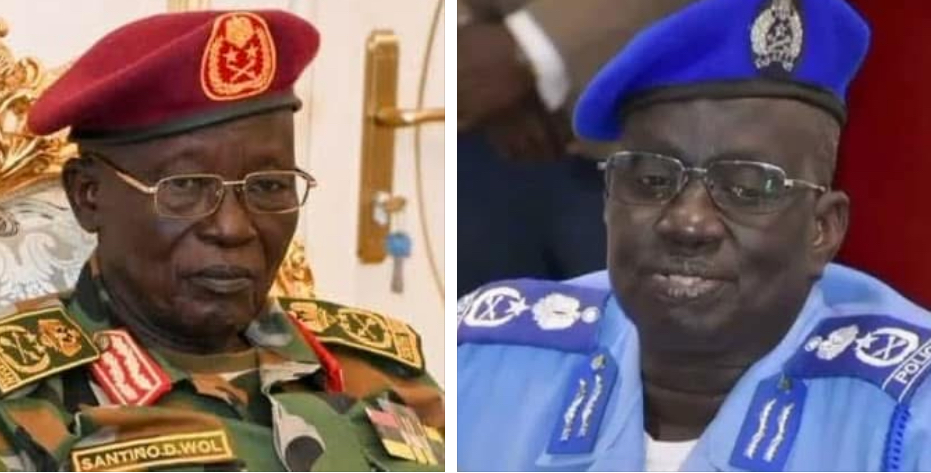In a sweeping move that underscores tensions within South Sudan’s security sector, President Salva Kiir Mayardit on Monday dismissed key army and police leaders. The shake-up comes less than a month after a violent gunfire exchange in Juba’s Thongpiny neighborhood raised alarms over the country’s fragile stability.
The decrees, broadcast on state-run South Sudan Broadcasting Corporation (SSBC), removed General Santino Deng Wol from his role as Chief of Defense Forces (CDF) of the South Sudan People’s Defense Forces (SSPDF). Deng has been reassigned as undersecretary at the Ministry of Defense, replacing Atak Santino Majak, who was also relieved of his duties. General Paul Nang Majok has been named the new CDF.
In the police force, General Atem Marol Biar was dismissed as Inspector-General and replaced by General Abraham Peter Manyuat.
The reshuffle extended beyond the security sector, with James Alic Garang ousted as the central bank governor. Kiir reinstated John Ohisa Damian, Garang’s predecessor, to the role. Additionally, Garang Majak, first undersecretary of finance, was replaced by Arop Nuoi Arop.
The president has not provided reasons for the significant changes, but they follow the violent incident in Thongpiny, also known as Juba Nabari. Last month, heavy gunfire erupted when security forces attempted to detain General Akol Koor Kuc, former Director-General of the Internal Security Bureau (ISB) of the National Security Service (NSS).
The clash, reportedly involving SSPDF officers acting on Kiir’s direct orders, raised fears of potential escalation. Observers noted similarities to the large-scale violence that rocked Juba in December 2013 and July 2016, during the country’s civil war.
The incident prompted Kiir to form a committee to investigate, signaling internal divisions within South Sudan’s security apparatus. The reshuffle is seen as one of the most significant in recent years as South Sudan continues to grapple with the aftermath of years of civil conflict and fragile peace agreements.
Analysts suggest the dismissals could either stabilize or exacerbate tensions, depending on how the changes are received within the security forces and the broader political landscape.
South Sudan, the world’s youngest nation, has faced persistent challenges in its quest for lasting peace since gaining independence in 2011. The recent upheaval underscores the complexity of navigating security and governance in a country striving to heal from the scars of war.




